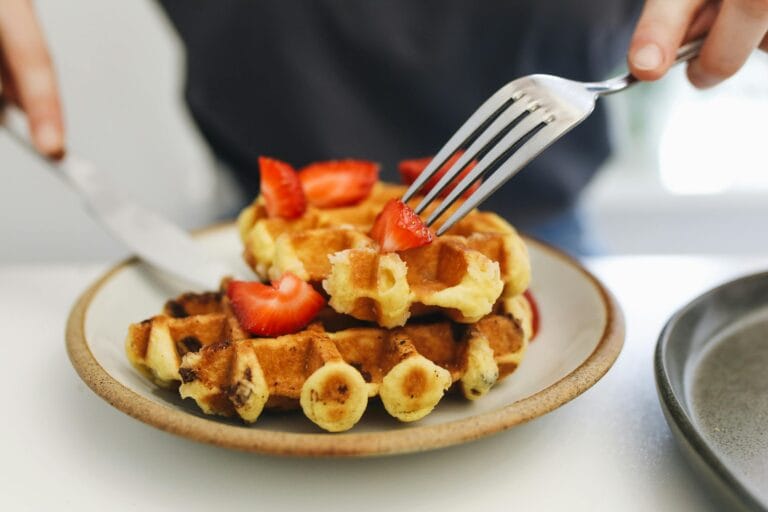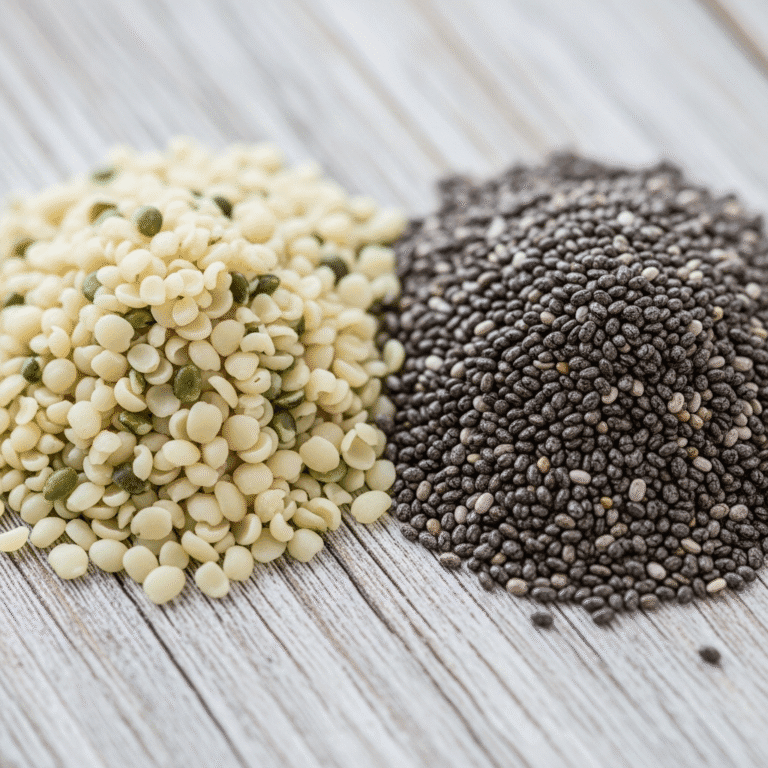FREE SHIPPING OVER $50
Feeling Low? These 15 Foods Act Like Natural Antidepressants, Say Psychologists

If you have ever reached for a comfort meal after a stressful day, you already instinctively understand the powerful connection between food and feelings. However, the influence of diet on our mental landscape goes far beyond simple emotional comfort. We are not just talking about temporary sugar highs or the satisfaction of a good meal; we are talking about the fundamental building blocks your brain requires to regulate your mood, manage stress, and produce the very chemicals that keep you feeling happy and stable.
Consequently, modern psychologists and neuroscientists have pivoted their focus, revealing that certain foods genuinely function like natural antidepressants, providing the key micronutrients necessary to stabilize your mental health. The foods we consume directly impact the neurotransmitters—like serotonin and dopamine—that control our emotional well-being. By integrating these specific, science-backed ingredients into your daily routine, you don’t just feel temporarily better; you fundamentally enhance your brain chemistry and create a more resilient foundation against low mood and anxiety.
The Hidden Link: Why Your Diet Is Your Mood’s Best Friend
To truly understand how food can act as a mood-boosting agent, we must explore the fascinating communication highway between your gut and your brain, known as the Gut-Brain Axis. This bidirectional link is so critical that your gut is often referred to as your “second brain.” The staggering fact is that around 90% of the body’s serotonin—the crucial neurotransmitter associated with feelings of well-being and happiness—is produced in the gut.
Furthermore, your body cannot create vital neurotransmitters like serotonin and dopamine out of thin air. It needs raw materials, primarily amino acids like tryptophan and tyrosine, along with essential cofactors like B vitamins and magnesium. When your diet consistently lacks these key ingredients, your brain’s ability to manufacture and regulate these feel-good chemicals suffers, leading to the familiar symptoms of low mood, brain fog, and fatigue. The 15 foods below are specifically chosen because they are rich sources of these exact compounds, offering a nutritional prescription for better mental health.
The 15 Foods Psychologists Recommend for a Mood Boost
The Neurotransmitter Builders: Omega-3s and B12
These foods are foundational, providing essential fatty acids and vitamins crucial for nerve function and inflammation reduction.
1. Fatty Fish (Salmon & Sardines)
Fatty fish, such as wild-caught salmon and sardines, are packed with long-chain omega-3 fatty acids (EPA and DHA). These fats are vital structural components of brain cell membranes. Doctors consistently highlight that omega-3s possess potent anti-inflammatory properties, which helps reduce the chronic brain inflammation often linked to depressive symptoms. Regularly consuming fish actively supports cognitive function and mood stability.
2. Oysters and Mussels
Oysters and mussels earn some of the highest Antidepressant Food Scores (AFS) among all animal foods. They are excellent sources of Vitamin B12 and zinc. B12 is essential for producing the chemicals that affect mood, while zinc deficiency is commonly associated with increased risk of depression. These shellfish offer a dense, powerful dose of mood-supporting micronutrients.
3. Eggs
Don’t skip the yolk! Eggs are rich in tryptophan and choline, a B-complex-related nutrient. Tryptophan is the necessary precursor to serotonin. Furthermore, eggs contain Vitamin D, a nutrient increasingly recognized for its mood-boosting properties, especially in those with deficiencies.
The Serotonin Starters: Tryptophan Sources
These ingredients directly supply the building blocks needed to manufacture happiness.
4. Turkey and Chicken
Poultry, especially the lean meat of turkey and chicken, is famous for its high tryptophan content. While protein competes for entry into the brain, a well-balanced meal containing a complex carbohydrate alongside the turkey can help ferry that tryptophan across the blood-brain barrier, making the precursor readily available for serotonin synthesis.
5. Lentils and Beans
Legumes, including lentils and chickpeas, are nutritional heroes. They offer substantial folate (Vitamin B9), magnesium, and iron. Folate is key for neurological function and neurotransmitter regulation, while iron deficiency can lead to fatigue and worsened low mood. These complex carbohydrates also ensure a steady release of glucose, stabilizing energy and preventing mood swings.
The Calming Crew: Magnesium and Complex Carbs
Magnesium acts as nature’s original chill pill, calming the nervous system, while complex carbs ensure steady, stable energy.
6. Spinach and Leafy Greens
Spinach, kale, and other leafy greens are magnificent sources of magnesium and folate. Magnesium helps regulate the body’s stress response system and calms overactive nerves, effectively reducing anxiety. Folate contributes directly to the synthesis of dopamine and serotonin, making leafy greens indispensable for mental health.
7. Oats and Whole Grains
As complex carbohydrates, oats and whole grains like quinoa stabilize blood sugar levels. When your blood sugar crashes, your mood follows; these foods prevent that sharp dip. Moreover, they are excellent sources of B vitamins, which help convert food into energy and support overall neurological resilience.
8. Nuts and Seeds
Walnuts, Brazil nuts, and pumpkin seeds are small but mighty. Walnuts supply omega-3s (ALA), while Brazil nuts are a superior source of selenium, a trace mineral that acts as an antioxidant and is often deficient in individuals experiencing depression. Pumpkin seeds are incredibly high in magnesium and zinc, both pivotal for stress reduction and stable mood.
9. Fermented Foods (Yogurt and Kefir)
This group directly impacts the Gut-Brain Axis. Fermented foods like natural yogurt and kefir contain probiotics, the beneficial bacteria that populate the gut microbiome. A robust and diverse microbiome directly enhances the gut’s ability to produce serotonin and other neuroactive compounds, actively promoting a positive mood-boost.
The Feel-Good Finishers: Antioxidants and Modulators
These foods contain unique compounds that either reduce damaging inflammation or mimic the effects of feel-good chemicals.
10. Dark Chocolate
Rejoice! Dark chocolate (at least 70% cocoa) contains flavanols that improve blood flow to the brain, which in turn enhances concentration and mood. It also contains N-acylethanolamines, compounds that are thought to be similar to anandamide, sometimes called the “bliss molecule,” helping to elevate feelings of contentment.
11. Berries (Blueberries and Strawberries)
Berries are loaded with antioxidants called anthocyanins. These compounds protect the brain from oxidative stress and inflammation, essentially shielding the delicate neural pathways that manage mood. Regular consumption of blueberries and strawberries is a simple, delicious way to boost cognitive health and resilience.
12. Avocado
This creamy fruit provides healthy monounsaturated fats that support blood flow to the brain, and it is a good source of tyrosine, the amino acid precursor to the energizing and motivational neurotransmitter, dopamine.
13. Bananas
Bananas are a triple-threat mood-boosting food. They supply Vitamin B6, essential for converting tryptophan into serotonin; they contain the complex carbohydrate necessary for tryptophan to enter the brain; and they provide prebiotics, which feed the healthy bacteria in your gut.
14. Turmeric (Curcumin)
The active compound in turmeric, curcumin, has demonstrated impressive anti-inflammatory and antioxidant effects. Curcumin is strongly linked to elevating levels of serotonin and dopamine, making this spice a powerful, natural adjunct to any mental health plan.
15. Green Tea
While not a food, green tea deserves inclusion for its high content of L-theanine. This unique amino acid promotes a state of calm alertness, actively reducing stress and anxiety without causing drowsiness. Its effect on calming the nervous system complements the nutrient-dense foods that build mood chemicals.
Building a Happier Plate: Other Tips To Combat Depression
While these 15 foods are potent allies in combating low mood, psychologists confirm that the overall pattern of your diet matters most. Consistently favoring whole, unprocessed foods—like those found in a Mediterranean-style diet—and actively limiting inflammatory, highly processed sugars and refined carbohydrates will dramatically enhance the efficacy of these natural antidepressants. Think of these foods as fuel: your brain performs best when you give it the highest-octane, nutrient-dense ingredients available. Prioritize hydration, maintain consistent mealtimes, and couple these dietary changes with regular physical activity to see the most profound mood-boosting results. Ultimately, taking control of your plate means taking control of your mental health—a powerful, science-backed truth that truly empowers you to feel better every day.
Related Articles
- Testosterone Tanking After 30? These 10 Foods Could Be Your Hormonal Lifeline
- This Everyday Root Could Lower Your Blood Pressure Naturally—Doctors Are Talking About It
- Men Over 50: Eat These 10 Protein-Packed Foods Daily to Stay Strong, Lean, and Energized
- The Protein Myth: 10 Plant Foods That Build More Muscle Than Meat—Sports Nutritionists Say You’ve Been Lied To
- Feeling Foggy? These 8 Brain-Boosting Foods Could Sharpen Your Mind—Dietitians Approve







